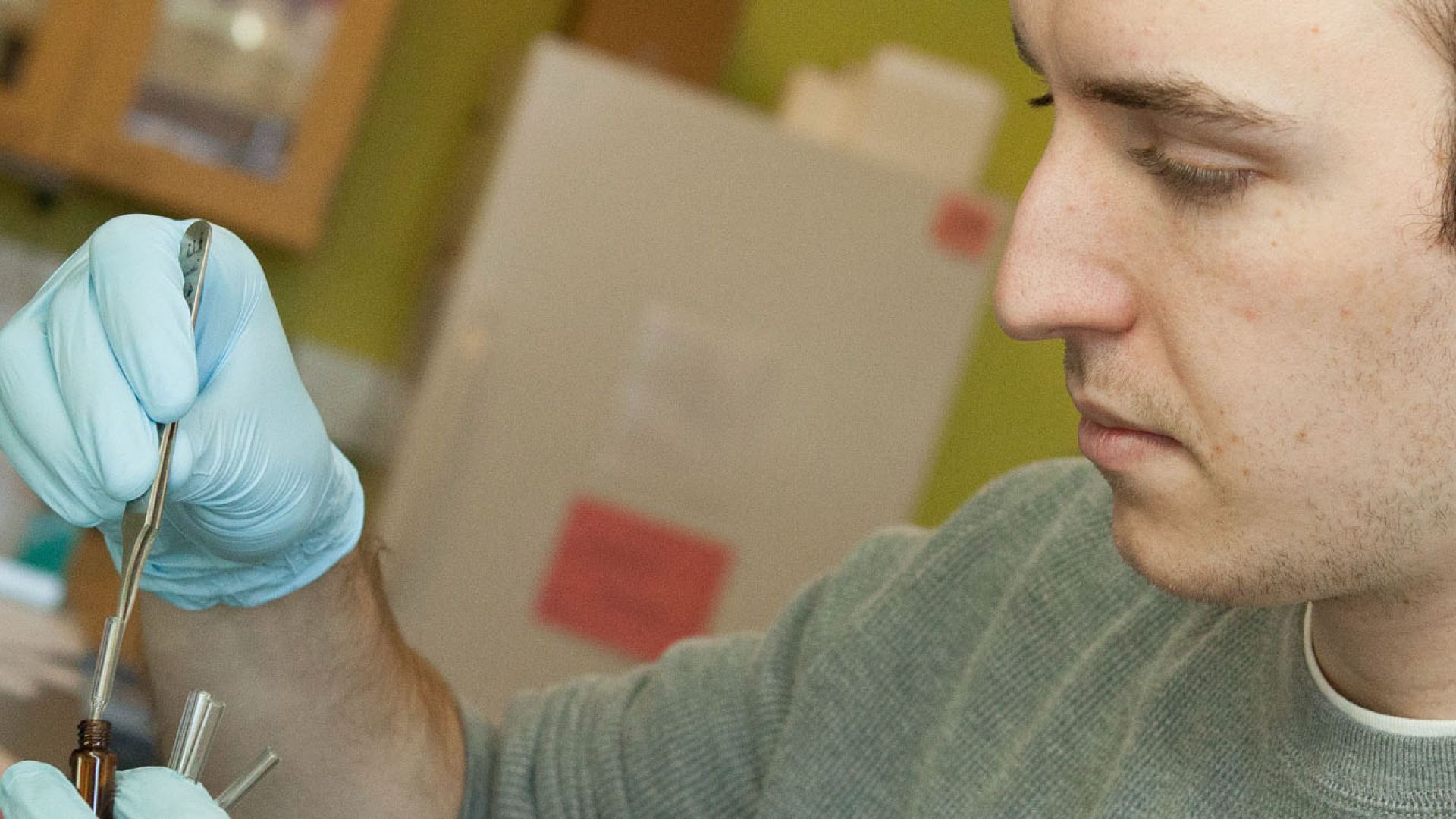Pacific University undergraduates who are interested in a career as a pharmacist may choose to complete a pre-pharmacy track along with their bachelor's degree in preparation for graduate school. The Pacific University College of Health Professions offers a doctoral program in pharmacy for qualified graduates.
Another option is the Pacific University Pharmacy 3:3 Pathway that allows students to earn a bachelor’s degree in environmental science and a doctor of pharmacy (PharmD) degree in just six years with the Environmental Science 3:3 Pathway— two years less than it would take to complete a bachelor’s and traditional PharmD program.
About Pharmacy
Pharmacists dispense drugs prescribed by physicians and other healthcare practitioners, and they provide information to patients about medications. They advise physicians and other healthcare providers on the selection, dosages, interactions and side effects of medications. Pharmacists must understand the use, composition and effects of drugs.
Compounding — the actual mixing of ingredients to form powders, tablets, capsules, ointments and solutions — is a small part of a modern pharmacist’s practice, because many medicines are produced by pharmaceutical companies in a standard dosage and form.
Pharmacists in community retail pharmacies counsel patients and answer questions about prescription drugs. They provide information about over-the-counter drugs and make recommendations. They also give advice about durable medical equipment and home healthcare supplies. Some community pharmacists also offer specialized disease management services for conditions such as diabetes, asthma, smoking cessation and high blood pressure.
In hospital and clinical settings, pharmacists dispense medications and advise medical staff on selection and effects of drugs. They may make sterile solutions and buy medical supplies. They also assess, plan and monitor drug regimens and counsel patients on the use of medications.
In home healthcare, pharmacists prepare infusions and other medications for use in the home and monitor drug therapy. Most pharmacists keep computerized records of patients’ drug therapies to prevent harmful drug interactions.
Some pharmacists specialize in specific areas, such as drugs for psychiatric disorders, intravenous nutrition support, oncology, nuclear pharmacy or pharmacotherapy.
Employment of pharmacists is expected to increase 2 percent from 2021 to 2031. The incidence of chronic diseases, such as diabetes, has increased, and more pharmacists will be needed to help patients manage these diseases. The median annual wage of pharmacists in 2021 was $128,570.
Program and Requirements
Pharmacists require a doctor of pharmacy degree. All doctor of pharmacy programs require applicants to have taken undergraduate courses such as chemistry, biology and anatomy. Most pharmacy schools require students to have completed two to three years of undergraduate study, while some programs require a completed bachelor’s degree.
Applicants also must take the Pharmacy College Admissions Test, or PCAT, for admission to most programs.
PharmD programs typically take four years to complete, though some programs offer a three-year option. Coursework includes pharmacology and medical ethics, as well as supervised work experience in various settings. Pharmacists seeking advanced positions, such as clinical pharmacy or research jobs, complete a one- to two-year residency after completing their PharmD degree. Pharmacists also must pass two exams to earn a license: one in pharmacy skills and knowledge and the other in pharmacy law in the state of practice.
The Pacific University School of Pharmacy offers a three-year curriculum. Students must complete a minimum of 62 semester credits of prerequisite courses prior to admission. A completed bachelor’s degree is not required but is strongly recommended.
Prerequisites
Biological Sciences (at least 19 semester hours)
- General Biology | BIOL 200 and BIOL 201 | with lab
- Microbiology | BIOL 308
- Human Anatomy & Physiology | HBIO 230 and HBIO 231 | with lab
Chemistry (at least 16 semester hours)
- General Chemistry | CHEM 220 and CHEM 230 | with lab
- Organic Chemistry | CHEM 300 and CHEM 400 | with lab
Physics (3 semester hours)
- General or upper-level physics with lab
Mathematics (3 semester hours)
- Must include calculus
English (6 semester hours)
- Must include English composition (3 semester hours)
- Other English, such as HUM 100 (FYS) can count towards this requirement. Other options include: composition, literature, creative writing or poetry (3 semester hours)
Speech (3 semester hours)
- May include speech, communication, debate (MEDA 101, 110, or 201 will count)
Psychology (3 semester hours)
- Must include Intro or Abnormal Psychology
Economics (3 semester hours)
- Must include Micro or Macro
Social/Behavioral Sciences (3 semester hours)
- May include anthropology, government, human development, political science, psychology, sociology
Humanities/Fine Arts (3 semester hours)
- May include geography, history, religion, philosophy, literature, performance, visual arts, drama
The applicant must complete a minimum of 62 semester hours of pre-pharmacy study in a regionally accredited college or university in the United States. Applicants must achieve a minimum of 2.7 on a 4.0 scale in the three required GPAs for application (accumulative, science, and last 45 hour GPAs), or its equivalent, and have received a grade of “C” or better in all prerequisite courses. Courses taken pass/fail or by correspondence will not be accepted. Science prerequisite courses must be for science majors and include laboratory as indicated below. Low-level non-science major courses will be unacceptable in meeting the requirements. The program does not grant advanced standing for any course. While a bachelor’s degree is not required in order to apply to the program, it can make an application more competitive.
It is recommended that the science prerequisites be completed within seven calendar years of the time of application to the program. The applicant must report all coursework completed (passed and failed) to reveal educational history. Not doing so will forfeit the applicant’s eligibility for admission. All materials submitted to Pacific University for admission become the property of the University and will not be returned or released.
Some colleges require the applicant to take the Pharmacy College Admission Test.
More Information
Pacific University Advising Center
Pacific University School of Pharmacy
American Pharmacists Association
American Association of Colleges of Pharmacy



